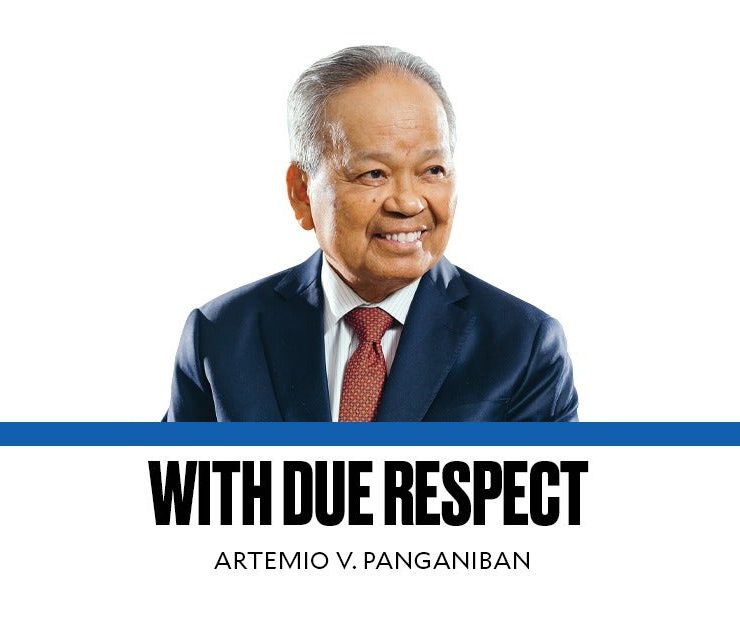RA 6713, the ‘Bible’ of public officials

Together with the Constitution, the Anti-Graft law (Republic Act No. 3019) and the Law of Forfeiture of Ill-Gotten Wealth (RA 1379), I consider the Ethical Standards law (RA 6713) as the “Bible” of public officials, who must therefore obey it, especially amid these stupefying billion-peso pork barrel, trillion-peso legislative insertions, and other mind-bending scams. All these could have been prevented and the crooks penalized by its strict enforcement, especially by the Office of the Ombudsman (OMB) and the Civil Service Commission.
SPONSORED BY MY GURU, the late Senate President Jovito R. Salonga, the late Sen. Rene A. V. Saguisag, and others, the law was approved on Feb. 20, 1989. Due to my space limits, I will take up only (1) the norms of conduct and duties of public officials, (2) their prohibited acts and transactions, and (3) the penalties for the law’s violations. Public officials, under this and other laws, “include elective and appointive officials and employees, permanent or temporary, whether in the career or noncareer service, including military and police personnel, whether or not they receive compensation, regardless of amount.” They render public duties and use public funds.
Under the norms and duties, public officials shall (a) always observe public interest over their personal interest, and use their powers “efficiently, effectively, honestly and economically…;” (b) act with justness and sincerity without discriminating against anyone “especially the poor and underprivileged;” (c) not extend “undue favors on account of their office to their relatives whether by consanguinity or affinity” except to their strictly confidential or coterminous staff; and (d) provide service without discrimination and “regardless of party affiliation or preference.”
Moreover, they shall extend prompt, courteous, and adequate service and “provide information of their policies and procedures in clear and understandable language … ensure openness of information, public consultations, and hearings whenever appropriate, encourage suggestions, simplify, and systematize policy rules and procedures, [and] avoid red tape…”
Very importantly, public officials and “their families shall live modest lives appropriate to their positions and income.”
Among their other duties and obligations are to (a) respond, within 15 working days from receipt, to communications sent by the public; the reply must contain the action taken thereon; (b) process documents and papers expeditiously, containing, as far as practicable, not more than three official signatures; (c) make documents accessible to, and readily available for inspection by the public within reasonable working hours.
PUBLIC OFFICIALS ARE BARRED from committing these “prohibited acts:” (a) having, directly or indirectly, any financial or material interest in any transaction requiring the approval of their office; (b) owning, controlling, managing, or accepting employment as officer, employee, consultant, counsel, broker, agent, trustee, or nominee in any private enterprise regulated, supervised, or licensed by their office unless expressly allowed by law; (c) engaging in the private practice of their profession unless authorized by the Constitution or law; or (d) recommending any person to any position in a private enterprise which has regular or pending official transactions with their office.
These prohibitions shall continue to apply for one year after resignation, retirement, or separation from public office, except in the case of professional private practitioners, but the professional concerned cannot practice his/her profession in connection with any matter before the office he or she used to be with.
To stress, public officials shall likewise submit a sworn statement of their assets, liabilities, net worth (SALNs) and disclose their financial and business interests (disclosures), including those of their spouses and of unmarried children under 18 years living in their households.
SALNs and disclosures must be filed: (a) within 30 days after assumption of office; (b) on or before April 30 of every year thereafter; and (c) within 30 days after their separation from the service.
IN GENERAL, VIOLATIONS OF RA 6713 shall be punished with a fine not exceeding the equivalent of six months’ salary or suspension not exceeding one year, or removal, depending on the gravity of the offense, after due notice and hearing by the appropriate body or agency.
However, criminal conviction of the “prohibited acts” and/or the failure to file SALNs and disclosures shall be more heavily punished—imprisonment not exceeding five years, or a fine not exceeding P5,000, or both, and/or disqualification to hold public office.
Any violation proven in a proper administrative proceeding by the OMB shall be sufficient cause for removal or dismissal, even if no criminal prosecution is instituted.
Private individuals who conspire with public officials shall be subject to the same penalties and tried jointly with them.
—————-
Comments to chiefjusticepanganiban@hotmail.com


















